Why Promoting Tourism Now is a Big Fail
April 30, 2020 - Should we be promoting tourism at this time of crisis? An alternative view from Katherine Kurelja, who joins the TCN writing team. Welcome, Number 150!
Are you dreaming of a holiday right now? Who isn’t! But, with all the uncertainty are you actually planning anything? Didn’t think so. And this applies even to those with the means and the travel itch. A friend of mine in the US getting married in the fall cannot even be bothered to think about a honeymoon right now. Listen up, tourist industry! Travel is the last thing most people are spending time truly thinking about for obvious reasons. Furthermore, many even feel like it’s torture to be taunted by your beautiful landscapes, gorgeous food and relaxed and tanned people.
It pains me to see Croatia, as well as distinct regions and towns in Croatia, putting so much effort and money into countless videos and websites sharing love “from a distance” (only to compete with the thousands already out there for every other well-known tourist destination). This type of content creates zero emotional connection with your previous visitors and certainly does little if nothing to attract new ones.
Enough criticism. Here’s what to do instead to make people think Croatia when they are ready and able to travel.
Focus on building brand
Stjepan Hauser with his recent concert from Pula arena did wonders to help brand Croatia as a beautiful, hopeful and healthy destination. Read the comments on YouTube and one can see what positive vibes the concert brought to over half a million viewers from around the world. Key takeaway – work those connections and look to those outside of tourism to promote Croatia. These brand ambassadors could be from many areas including business or even healthcare.
Lead through innovative ideas
Croatia has absolutely no shortage of people with creative and innovative ideas. According to a recent EY survey 70% of brand is client experience. Think of what you can do to show your visitors past and present that you understand them and their needs.
One move that impressed me was that of Zoran Pejovic and Maslina Resort. They are building Croatia’s attractive brand as a leading post-lockdown destination through strategic thinking. Their vision in creating a new Health and Safety Leader role for their resort shows a focus on their future client’s experience and more importantly, their emotional needs.
Think outside the box and make it personal
So much of the content that is currently being created is quite generic. Know who your desired guests are (hint: it’s not everyone) and do research on where they are mentally right now. Croatia attracts tons of tourist families. Engage them and provide them helpful content. Millions are homeschooling their children right now. Consider providing parents some fun activities to do with their kids (of different ages) that reflect Croatia’s culture. Share a tutorial on how to play briškule, share meaningful stories about (or with) our famous athletes and not about their hometowns. Target retirees who have the means to travel and want to live their lives to the fullest because of this pandemic. Tell them about how safe and careful Croatia has been during this crisis, but do so creatively. The bottom line is create a connection on their terms, not yours.
Creating a lasting connection
To make a lasting mark with your future guests it comes down to showing empathy and humanity. Entertain them, make their life easier right now, make them know you care not through platitudes, but through service. Be there for them and when they are ready, they will be there for you.
Katherine Kurelja is a brand and marketing expert and Co-Founder of Back Bay Agency. For more ideas on how to create a lasting connection with your future guests, contact Katherine at This email address is being protected from spambots. You need JavaScript enabled to view it..
The views reflected in this article are those of the author and do not necessarily reflect those of TCN.
For the latest tourism news from Croatia, follow our dedicated tourism section.
Nextbike and Split Parking Team Up to Offer Free Rides During Corona Era
April 30, 2020 - Split Parking and Nextbike have teamed up to ensure more citizens use cycling as a form of transportation this spring, and all they need to do is register by the end of May.
Slobodna Dalmacija reports that at times when increased caution is needed and the epidemiological experts call for social distance, bicycles have proven to be the ideal means of transportation, at least in Split.
The numbers confirm that.
Namely, the daily record of rentals was broken with 322 rentals last Saturday since the system was put into operation a little over a year ago.
Also, the last week ended with 1,437 rentals, making it one of the best weeks by the number of rentals, with a record number of new users in April, 1,122 to April 27.
In order to continue the positive trend, Split Parking and Nextbike have allowed all future users of these public city bikes the chance to activate their monthly seasonal subscription for free.
The 30-day campaign includes an unlimited number of daily rides for up to 30 minutes.
For 30 days, the citizens of Split will be able to use the free trial to see how Nextbike works on a daily basis. All you need to do is enter the code SPLIT2020 after your account is activated, and the offer runs until May 31, 2020.
Split Parking said that they were pleased that citizens recognized the benefits of this type of transport, especially in today's environment, where it is recommended to avoid crowds and large numbers of people in the same place. Cycling has thus become one of the safest forms of transportation.
"It's a good time, citizens are eager to get outdoors, and there are still obligations that must be fulfilled, as people have to go to work, to the doctor, to the shop, and bikes can make it safer, faster and cheaper. Certainly, we must not forget the environmental component of this form of transport. We also expect the April figures to break past results," said Marko Bartulić, director of Split Parking.
They also stressed that all safety and security measures are implemented on a daily basis and that bicycles and stations are regularly cleaned and disinfected with special means, while repairers wear all necessary protective equipment, all to ensure maximum protection for all users.
In order to meet the increasing demand, the entire system will soon be upgraded, which includes setting up around 40 new stations and 175 new bicycles by the end of the year.
This will give each district at least one station and all major institutions and locations will be covered.
To read more about lifestyle in Croatia, follow TCN's dedicated page.
Gari Cappelli and Slovenia Optimistic about Opening Borders between Two Countries
April 30, 2020 - On Wednesday morning, Tourism Minister Gari Cappelli announced that the border with neighboring Slovenia would be the first opened, which is Croatia's second most important market, generating 10% of overnight stays in the country last year.
HRTurizam reports that Slovenes have a great desire to come to the Adriatic, at least according to the current interest of the media. Still, of course, two crucial preconditions must be fulfilled: a satisfactory epidemiological situation and opening the borders.
Otherwise, the epidemiological situation in Slovenia is better than in Croatia, and with 10 new cases of COVID-19 yesterday, there are a total of 1,418 patients and 89 deaths.
On the topic of opening the borders, Minister of Tourism Gari Cappelli met with Minister of Economic Development and Technology of the Republic of Slovenia, Zdravko Počivalsek, Wednesday afternoon.
Croatia and Slovenia have had excellent tourism cooperation for many years, not only because they are presented together to distant markets, but also because guests from Slovenia are one of the most loyal and numerous guests in Croatia, Minister Cappelli said during the meeting, adding:
"We are actively discussing the possibilities of opening borders, as well as ways to secure all the necessary measures and processes for Slovenian citizens to spend their holidays in Croatia. We especially addressed Slovene citizens who own real estate in Croatia and are trying to find solutions for them to come to their property, in compliance with all prescribed epidemiological measures. We have a common desire to initiate mutual tourist flows when circumstances permit, and we also want to find ways to ensure the highest level of health care for Croat and Slovene citizens in the event of a possible tourist exchange."
The ministers also discussed facilitating tourism with the development of travel procedures, which was discussed during a video conference of tourism ministers of EU member states, held earlier this week. They also stressed the importance of strengthening the position of tourism, i.e., the availability of funding for the tourism sector through future EU financial frameworks, as well as in the current situation to maintain the stability of economic operators and jobs in the tourism sector.
"There are approximately 110,000 private properties owned by Slovene citizens in Croatia and it would be appropriate to allow them to visit their summer residences. In Slovenia, we are optimistic about the possibility of at least partially establishing cross-border tourist traffic between our two countries, at least in the late summer and under special health care conditions," said Slovenian Minister Počivalšek, noting that Slovenia and Croatia are traditional tourist and friendly countries and that both nations are good hosts.
According to data from the eVisitor system, in 2019, almost 1.6 million arrivals and almost 11 million overnight stays were generated in Croatia by guests from Slovenia.
To read more about travel in Croatia, follow TCN's dedicated page.
Milanović: Operation Flash Excellent Military and Police Operation
ZAGREB, April 30, 2020 - Marking the 25th anniversary of the Flash military and police operation, President and Supreme Commander of the Armed Forces Zoran Milanović received for talks the army and police commanders who had participated in that operation, noting that it was an excellent operation.
"It will soon be 25 years since Croatia conducted its first major liberation operation and put an end to its four-year agony of being divided territorially and unable to function normally," said Milanović.
He added that the operation was impeccable in the military operational sense as well as in terms of respect for international law.
"That was an excellent military and police operation in every aspect," he said.
"As long as I am president, advancement in the army will be regular. There will not be any daily politicking. A system of values will exist and those are values that made it possible for us to join NATO and later the EU. That is Western democracy, which has various tones and colours and they are not all the same, but what we have in common with the countries with which we share security clauses and the article on mutual security assistance in case of an attack is that we have free elections and respect certain criteria and human rights," the president said.
"Thank you for everything you did for Croatia. Thank you for your active contributions. Long live Croatia," said Milanović.
The reception was attended by military and police commanders headed by Chief-of-Staff Admiral Robert Hranj and representatives of the Police Directorate.
More news about the Homeland War can be found in the Politics section.
Timelapse Organic Farmer: OPG Romulic Shows the Self-Sustainable Way (VIDEO)
April 30, 2020 - Celebrated photographer and timelapse master Mario Romulic combines his unique skill set so showcase his wonderful organic farm at OPG Romulic in Baranja.
One of my favourite people in Croatia is Mario Romulic, the hairy half of the Osijek Maestros, better known as the photographer and timelapse geniuses, Romulic and Stojcic.
Here is an example of their timelapse work, Krka National Park by night.
I have known Mario for about 9 years, ever since he kindly helped me out with some photos for my Hvar guidebook all those years ago, and we have been firm friends since. He has also been a big supporter of TCN with his photography, which always make my articles look 10 times more interesting. But Mario has another passion apart from photography.
OPG Romulic.
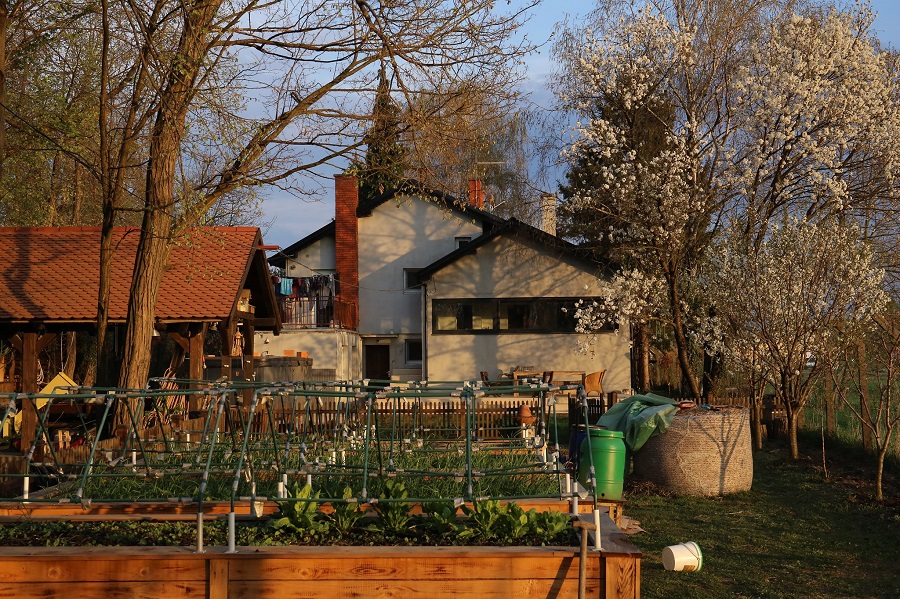
Just a few minutes drive north of Osijek and about 1 kilometre from Kopacki Rit Nature Park is Mario's family home and 4 hectares of land. His garden is set in idyllic woodland, and he has created a quick magical organic garden with wooden holiday home with total privacy at the end of the garden. We went to stay there back in October on our outstanding family weekend in eastern Croatia.
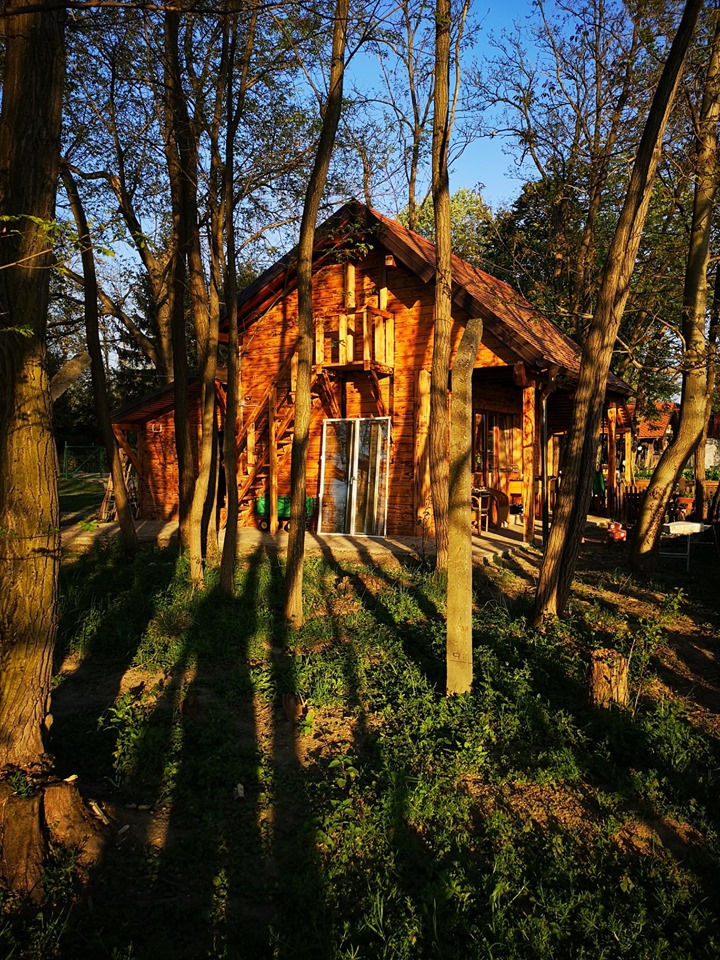
What started out as a change to a healthier lifestyle has slowly developed into the start of a small business, with OPG Romulic offering health, organic lifestyle breaks. Add in the chance to have a photo safari of the natural beauty of Kopackii Rit with Mario himself, and this is truly a wonderful side of Croatia that people rarely experience.
With the current crisis and with more and more people looking to buy and grow local, Mario was ahead of his time - here he is more than a month ago with an interview for the Croatian media, which TCN also carried, Croatian Photographer Mario Romulic Makes Case for Self-Sufficiency.
The OPG Romulic Facebook page has been very active recently, as Mario has been combining his organic farming skills with that of his legendary timelapse photography. Above and below, you can see how potatoes and planted and organic gardens built, Romulic-style, with more photos of this little slice of organic paradise below.
To follow the latest OPG Romulic goodness, follow the official Facebook page.
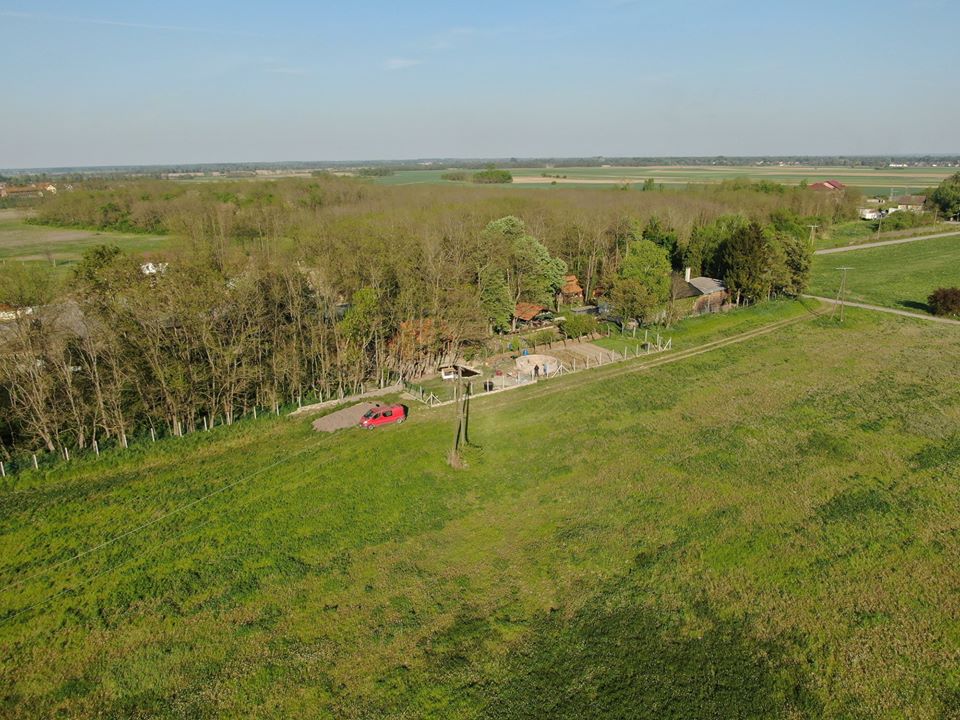
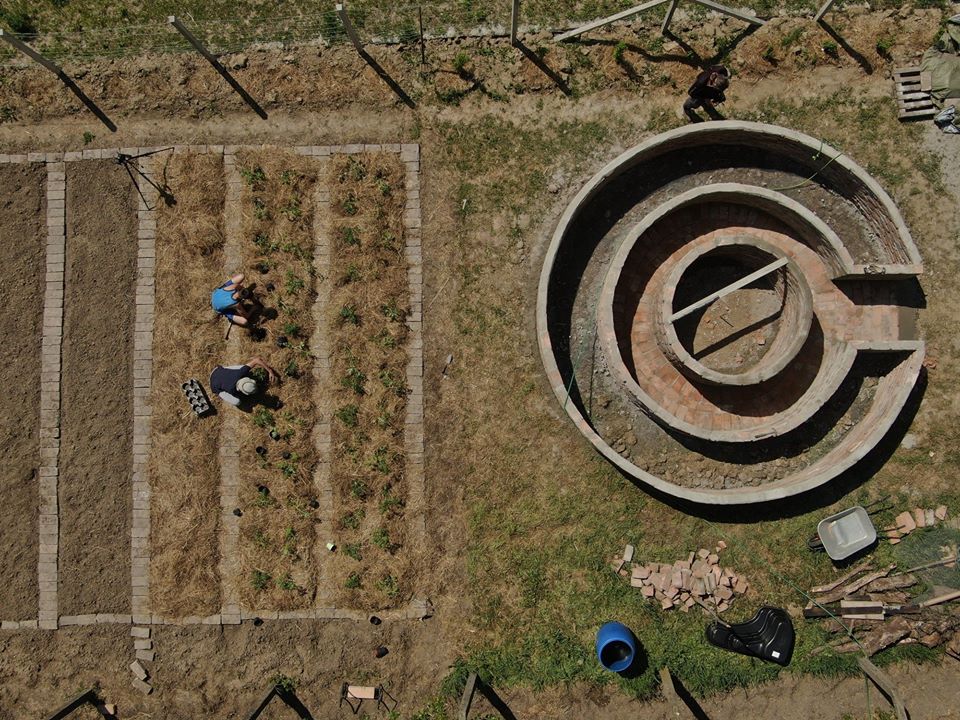
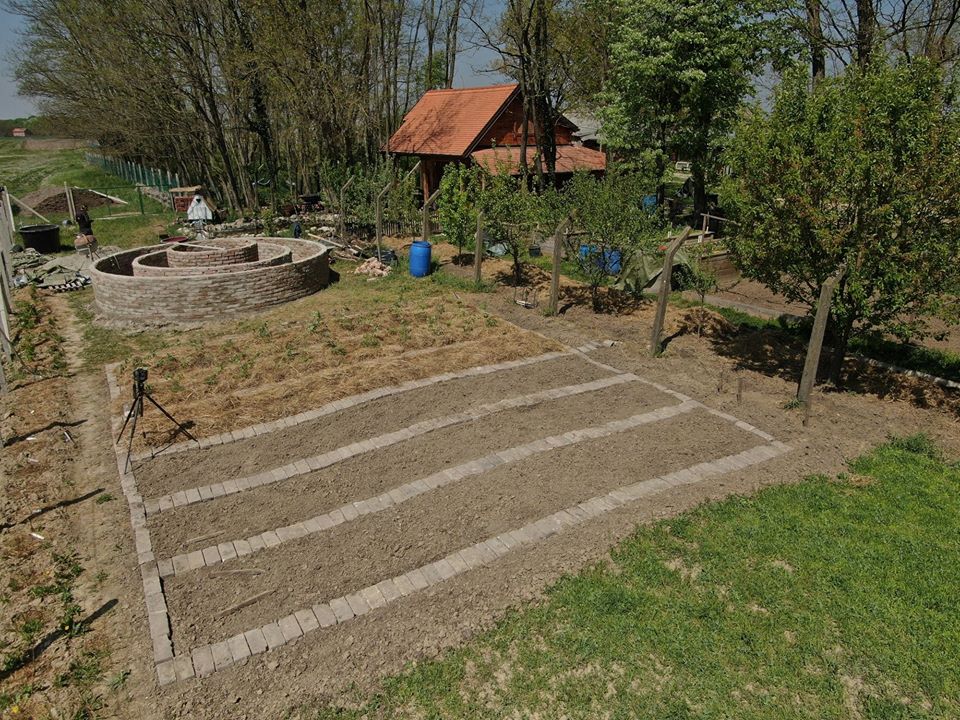
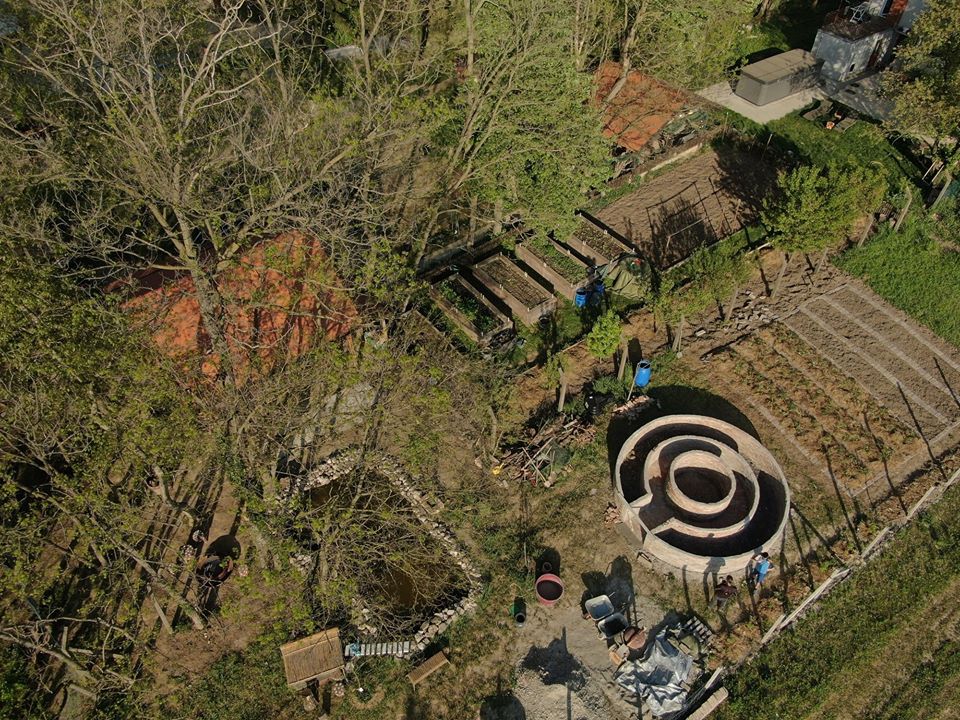
Rainbow Families NGO Calls for Inclusive Laws
ZAGREB, April 30, 2020 - President Zoran Milanović on Wednesday received a delegation of the Rainbow Families association, who informed him of the association's activities geared towards ensuring that all laws in Croatia are non-discriminatory and inclusive for all citizens, in line with the Constitution.
The representatives of this non-governmental organisation, which brings together same-sex partners, welcomed a decision by the Constitutional Court on the Foster Care Act under which life partners can also become foster parents.
They stressed that it was important that the Foster Care Act itself was amended in line with the Constitutional Court decision, the Office of the President said in a statement.
They warned that the current Family Act and the Act on Medically Assisted Reproduction put life partners in an unequal position in relation to other citizens, noting that they expect a debate to be launched on those laws and their alignment with constitutional values.
"We are not seeking greater rights, we just want Croatia to be a society of equals," the association said.
President Milanović said that the decision by the Constitutional Court was good because everyone should be equal before the law and he supported the association in its promotion of the equality of all Croatian citizens, the Office of the President said.
More news about Zoran Milanović can be found in the Politics section.
Unemployment Figures Increase in April for First Time in Recent History
ZAGREB, April 30, 2020 - At the end of April there were 158,795 unemployed persons in Croatia, which is 15,300 more than in March and 27,700 more than at the end of April 2019, and this is the first time in the country's more recent history that unemployment has increased in April, the Croatian Chamber of Commerce (HGK) has said.
This is the first time in Croatia's recent history that unemployment has increased in April on the month and the first time since 2013 that it has increased year on year in that month, the HGK said.
It recalled that April was the first whole month in which business and consumption had taken place in restricted conditions and that most of the month had been spent in quarantine, with restrictions being partially lifted only in its last week.
"In the first few days of the month, increased pressure on the employment office was evident, with the trend of the daily growth of unemployment being somewhat relieved after the government's second set of measures designed to help save jobs," the HGK said in a press release.
The HGK believes that as restrictions are gradually lifted, the number of people registering as unemployed will decline.
However, the higher level of unemployment will probably remain due to the absence of seasonal employment this year.
The usual downward curve in unemployment in the middle of the year will probably be a lot straighter this year mostly due to the absence of mass employment in tourism, the HGK said, adding that only 424 people were removed from the unemployment register in April to take up jobs in the accommodation and hospitality sector, whereas last year that number was 7,120.
More economic news can be found in the Business section.
EU Ministers Discuss Impact of Coronavirus Crisis on Transport Sector
ZAGREB, April 30, 2020 - EU transport ministers on Wednesday discussed the impact of the coronavirus pandemic on the transport sector, with emphasis on challenges to arise with the relaxation of restrictions in member-states, the Croatian Sea, Transport and Infrastructure Ministry said.
This was the second video-conference of EU transport ministers on the impact of the coronavirus on the transport sector, organised by the Croatian EU presidency.
The meeting was chaired by Minister Oleg Butković and it was also attended by European Transport Commissioner Adina Valean.
The ministers expressed satisfaction with the measures introduced so far but also underlined the need to continue cooperation with the aim of alleviating the impact of the coronavirus pandemic.
Butković said that in preparing an exit strategy one should consider coordinated measures that are proportionate and non-discriminatory and take into account possible risks as well as find solutions for the financial obligations of businesses and hauliers affected by the crisis in the transport sector.
Also discussed at the meeting were current measures such as the impact of green corridors on maintaining supply chains. The ministers also called for caution given the expected increase in traffic in the coming period.
Commissioner Valean presented a set of additional measures adopted by the European Commission Wednesday to alleviate the impact of the crisis on the transport sector, and the ministers agreed about the need to adopt a coordinated approach in restoring connectivity and mobility and asked for the immediate implementation of sectoral guidelines for the gradual relaxation and lifting of restrictions.
Also participating in the conference, at Croatia's invitation, were Switzerland, Norway, Iceland and Liechtenstein.
More news about Croatia and the EU can be found in the Politics section.
Coronavirus: Ledo Makes Generous Donation to Four Zagreb Hospitals
As Poslovni Dnevnik writes on the 29th of April, 2020, Ledo has provided a donation of more than five tonnes of goods worth more than 100,000 kuna to four hospitals in Zagreb and the Good Home (Dobri dom) Institution, which takes care of those who are most in need.
These are packages that contain a number of Ledo's ready-made and frozen products, such as frozen vegetables and fish, meat, and sweet and savory dough.
Ledo made part of this generous donation, amounting to 60,000 in total, to the Zagreb Clinical Hospital Centre, the Zagreb Children's Hospital, the "Sveti Duh" Clinic and the "Dr. Fran Mihaljevic'' Clinic for Infecious Diseases. While through the ''Good Home'' Institution, Ledo donated a further 40,000 kuna worth of Ledo products.
Thus, the largest Croatian producer of ice cream and frozen food has once again shown that small steps build solidarity in emergency situations. This large Ledo donation, along with several smaller ones the company has already provided to the community since the coronavirus crisis began, is part of the Fortenova Group's overall contribution to the communities in which it operates. The total amount of Fortenova Group donations across Croatia and the immediate region has reached four million kuna during so far.
“Ledo is a socially responsible company with a long tradition. With these donations, we want to help to facilitate the work of hospitals, but also to thank all those who are tirelessly fighting the epidemic and helping those who need it the most in this situation. A big thank you goes out to all our employees who, in this emergency, are making an extra effort and showing their dedication to keep the production process running smoothly and to ensure the regular supply of markets in Croatia and across the region,'' said Marin Poljak, CEO of Ledo.
Thanking Ledo for the generous donation, Alen Zupan, the director of the Good Home Institution, emphasised that health and safety in these extraordinary circumstances are our common priority.
"It's therefore important to ensure that the system in which we operate is geared towards the most vulnerable citizens, so that it can cope with the potential spread of the disease, but also to remedy the effects of the severe earthquake which hit the City of Zagreb. Therefore, we'd like to heartily thank Ledo for a truly valuable donation to our Institution, which is intended for all of our fellow citizens in need of social protection who are beneficiaries of our social services,'' said Zupan.
Similarly, Ledo was thanked for the donation by Goran Roic, the director of the Zagreb Children's Hospital in Klaiceva, on behalf of the facility, the staff, and of course its young patients and their parents.
For more on coronavirus in Croatia, follow our dedicated section.
CES Releases Beneficiary List: Which Croatian Employers Received Grants?
The coronavirus pandemic has caused not only a global health crisis but a continually unfolding economic one. Croatia, despite its excellent and stringent anti-epidemic measures, hasn't managed to avoid the tremendous and sudden negative economic impact the virus has had. Owing to that, the Croatian Government came forward with economic measures to help stop the domestic economy from sinking, and Croatian employers have been entitled to numerous benefits owing to its introduction.
Just which Croatian employers have received grants from the government, and how much exactly have they been provided with? The issue of transparency is a hot one in Croatia, and the desire for everyone to be able to see exactly where the state grants are going has been a subject of much discussion.
As Poslovni Dnevnik writes on the 29th of April, 2020, a total of 1.5 billion kuna in support was received by almost 84,000 Croatian employers for nearly 485,000 workers, Prime Minister Andrej Plenkovic stated on Wednesday.
''The government has responded quickly and generously to Croatian employers to make sure they have access to minimum wage funds. That measure was quickly introduced. Within ten days of receiving a request [for the grant by a Croatian employer], that request was realised and everything was done completely transparently. I'd like to reiterate the fact that almost 84 thousand companies received grants for almost 485 thousand workers for the first round of support of 1 billion and 550 million kuna.
The Croatian Employment Service (CES) and the Tax Administration will ensure that no abuse of the measure occurs, and the Ministry, in cooperation with the CES, will definitely act swiftly and efficiently for April, too, with the amount for April being 4,000 kuna,'' said Plenkovic.
The largest number of grants - 77,057 of them, were paid for workers employed by micro-employers which have up to 10 employees. For employees working for small businesses, 5,876 grants were paid out, for medium-sized companies (boasting 51 to 250 employees) 889 grants were paid, and for large companies (with more than 250 employees) 147 grants were paid.
The largest share of government aid seekers lies among micro-entrepreneurs - making up 92 percent. Small businesses make up seven percent, medium-sized companies make up one percent, and large companies make up 0.03 percent.
You can find out more about the grants Croatian employers have received, and futher support, by clicking on the links provided below:
For more on coronavirus in Croatia, visit our dedicated section.

